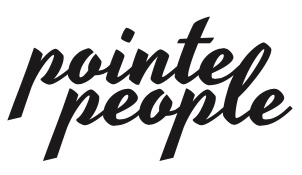You’ve seen the articles more times than you can count: 10 Foods to Eat for Brain Health. 20 Anti-Inflammatory Foods for Better Recovery. 15 Foods for Better Sleep.
Is food ever food any more?
Food list articles can make it seem like there’s an endless array of all the foods you should be eating, that you’re not eating, that you’re missing out on the health benefits of. Even if the ingredients are already on your table, you need to know what they do for your body. An egg isn’t an egg anymore. It’s a source of protein for better muscles, tryptophan for better sleep, B12 for better energy, slelenium, zinc, copper, vitamin D...
Beyond the fact that these kinds of articles take food from being, well food, to just being a bigger version of a vitamin, these articles erase the truth about food: not all foods are for all people, and not all foods are best for those health benefits.

When I was experiencing anxiety, I started turning to herbs and supplements for natural support. My friend from the Southern U.S.A. mentioned the valerian root as a supplement to soothe anxiety and help sleep. I bought a raw pound from the local co-op to drink as tea, brought it home, put some in hot water, took a sip, and physically recoiled. Valerian was NOT for me. Neither was rhodiola, a Tibetan supplement for better oxygen assimilation into the blood that just felt wrong for me to take. But ashwaganda, an Ayervedic herb for stress control, was a perfect fit.
And that’s the truth about food, herbs, and supplements in our industrial food day and age. We have thousands of options at our supermarket and thousands more online. Everything about how we eat has shifted from a seasonal, regional cuisine to a constantly available supply of ingredients from every corner of the world. While this brings many benefits, it also brings complications. While our food system has rapidly evolved, our genetics haven’t quite caught up, and our bodies are still used to food that is built into our dominant genetic makeup.
Milk, for example, is traditionally in Northern European areas with a genetic lineage of being able to digest milk. During colonization of different areas of Africa, cows were introduced to the pastures and African peoples began to develop genes to drink milk over generations. However, there still is a lower number of people with African descent having the milk processing gene than people of European descent. Though milk and milk products became globalized, stomachs are still catching up.
The lists of what are the Top Ten Foods for Brain Health all list good foods, but they don’t list the Top Ten Brain Health Foods for you. And if you eat off of what these lists tell you, you’ll probably eat well, and you still probably won’t be eating best for your body.
So how do you find what’s right for you then? One emerging way is DNA testing for genetic food processing. You can see what foods you digest best, which vitamins and nutrients you’re low in, and plan your meals accordingly. If you know your genetics are largely one nationality, you can also research traditional foods to plan an ancestoral diet. If you’re lucky enough to have kept the traditional foods of your heritage alive in your family, the foods your grandmothers and mothers make is likely closest to the food that’s best for you.
Intuitive eating is another way to link your stomach, mind, and genetics. Keeping a food log after you eat and noticing when you feel better, which foods make your stomach light up, which ones make you feel heavy, starts to give you a sense of what’s best for your body. The more you notice, the more sensitive you get. You can also try intuitive shopping - going into the grocery store without a recipe planned and buying according to your stomach (though don’t try this when you’re hungry).
When I switched to intuitive eating, I started upping my protein as I found I felt more energized throughout the day, Later, my ceruloplasmin tests came back low indicating I had low levels of protein. As I began continuing to eat higher levels of protein, I suddenly was struck with an ENORMOUS craving for red and orange bell peppers. I crunched a few pieces and after some research realized my diet was low in vitamin C, which the red and orange bell peppers supplied. My doctor later confirmed this by recommending a vitamin C supplement at my next visit. Eating intuitively, I was already in tune with what any tests could say about my body, and even one step ahead by knowing exactly which meats and vegetables made me feel best.
The more you eat intuitively, the more in sync you become with your body, and the closer you can get to eating exactly what your body needs, not what a magazine says are the best foods. As a dancer you’re already primed to listen to your body. Now you can learn to listen to your stomach.
African Adaptation to Digesting Milk Is "Strongest Signal of Selection Ever". Scientific American. Swaminathan, N. 2006. https://www.scientificamerican.com/article/african-adaptation-to-dig/



